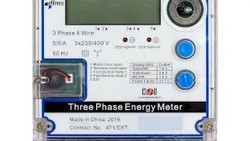The world of electrical energy is becoming more complex every day as systems expand and new technologies emerge. The engineers and technicians working behind the scenes to power our communities face growing challenges maintaining reliable supply. Exciting new tools like artificial intelligence and machine learning are now helping ease this burden by teaming up with industry experts.
Through data-driven insights, these technologies allow workers in the field to spend more time on high-value tasks while still monitoring operations closely. As a result, companies can better serve customers through more efficient, resilient infrastructure.
Understanding Artificial Intelligence
Artificial intelligence, or AI as it's commonly known, aims to mimic the way humans think and learn. At its core, AI is helping automate some of the complex decision-making processes that energy companies rely on daily to power our lives.
- What is AI?
In simple terms, AI allows machines to learn from vast amounts of data and recognize patterns, just as people do. Technologies like machine learning and predictive algorithms are forms of AI that analyse information to become "smarter" over time. AI is also assisting with predictive maintenance by learning equipment behaviours and spotting early warning signs of faults. This minimizes disruption risks for customers. - Benefits and Considerations
When AI works alongside industry professionals, the benefits are huge – from pinpointing efficiencies to preventing outages before they occur.
Of course, ensuring data privacy and transparency around these automated systems remains top priority too. With open collaboration on challenges, the future of AI in energy looks bright.
The Helping Hand of Machine Learning
Machine learning is an area of AI that allows systems to grow smarter from experience, much like humans do. By analysing immense amounts of industrial data, machine learning algorithms can spot patterns to help electrical companies in key ways.
- Predicting Energy Needs
By learning from past energy usage, machine learning helps grid operators forecast demand. This ensures supply reliably matches what homes and businesses require. - Detecting Issues Early
The algorithms act as an extra set of eyes, continuously monitoring systems for anomalies that could signal future faults. Catching small problems early means fewer disruptions for customers. - Optimizing the Whole Operation
Machine learning evaluates real-time generation, pricing and renewable availability to make intelligent decisions benefiting everyone – from maximizing efficiency to engaging customers through flexible demand programs. - A Learning Grid
As sensors feed more information into algorithms over time, machine learning enhances grid stability and resilience through predictive analytics. This learning ability is key to modernizing control processes for the future.
The Synergy Between AI and Machine Learning
AI and machine learning are technologies that work hand in hand to enhance control processes in electrical energy systems. While AI provides the foundation for intelligent decision-making, machine learning algorithms enable systems to learn and adapt over time.
- AI as the Foundation
Artificial intelligence serves as the foundation for intelligent control processes. It uses a range of techniques such as expert systems, natural language processing, and computer vision. AI algorithms process large volumes of data, extract valuable insights, and enable systems to understand, reason, and make informed decisions. - Machine Learning for Adaptability
Machine learning algorithms, a subset of AI, enable systems to become adaptive and self-learning. These algorithms can identify patterns, correlations, and trends that would be challenging for humans to detect. This adaptability allows control processes to continuously optimize energy generation, distribution, and utilization. - Intelligent Decision-Making
AI provides the framework for intelligent decision-making by integrating various data sources, considering complex factors, and generating actionable insights. For example, AI algorithms can analyse weather data, historical energy usage patterns, and grid conditions to make informed decisions about energy generation and distribution strategies. - Continuous Learning and Improvement
Machine learning algorithms enable control systems to learn from new data and adapt their behaviour accordingly. As more data is collected, machine learning models improve their accuracy and make more precise predictions. This iterative learning process ensures that control processes become more efficient and effective over time. - Real-Time Optimization
The synergy between AI and machine learning allows control processes to optimize energy systems in real-time. By continuously analysing data streams from sensors, smart meters, and other sources, these technologies can make instantaneous adjustments to energy generation, load balancing, and grid stability. This real-time optimization enhances the reliability and efficiency of electrical energy systems.

(symbol image, credit CLOU)
Energized About the Future
Control processes are evolving so rapidly as innovations come out. Explainable AI is an important step forward. It helps people see clearly how AI systems reach conclusions. Transparency in decision-making is key to building faith over the long run.
If users comprehend an automated process, they can follow its logic. Explainable AI sheds light on inner workings. It empowers people to grasp how and why a machine arrived at an outcome.
Edge computing is hugely exciting too – just imagine the real-time optimizations possible when data is analysed locally! Service teams will have even richer insights at their fingertips.
Combining AI and IoT can create amazing possibilities. Together, they'll deliver predictive analytics like never before. Visualizing entire networks in high-definition will transform maintenance and efficiency.
Maximizing Possibilities
As AI and machine learning take on ever greater roles, some areas require special focus. High-quality data collection through governance will be key to fuelling their success.
We must also be vigilant about cyber threats targeting critical systems. Prioritizing security measures protects infrastructure and builds confidence in new technologies.
An Ethical Roadmap
Transparency, fairness and accountability are equally important. Developing frameworks with input from experts and communities ensures algorithms serve the greater good. Privacy and consent will likewise guide responsible data use. Overall, balancing progress and principles is all-important for sustained trust.
Collaboration is the Path
By bringing diverse viewpoints together, we can work through challenges constructively. Technology partners and industry voices collaborating on solutions bodes well for responsible development and innovation.
Takeaway
As our industry continues progressing at a rapid pace, AI and machine learning are offering new possibilities for control processes in electrical companies. The MIT Laboratory for Information and Decision Systems recently published an interesting article on 26 February 2024, detailing the use of Generative AI for smart grid modelling. This insight underscores the potential for these advanced tools to foster even greater efficiencies, resilience, and resourcefulness. While each technology has its own advantages, when they work together, they can be very useful.
I hope I've provided you with valuable insights into the exciting world of AI and machine learning in control processes for the electrical energy sector.
As always, thank you for taking the time to read my article!
If you're interested in learning more about our AMI solutions, data acquisition, or how we can support your activities in this segment, don't hesitate to reach out to us.
Until then, keep shining bright like a solar panel on a sunny day!
And, leave me a comment!






All comments are moderated before being published. Inappropriate or off-topic comments may not be approved.